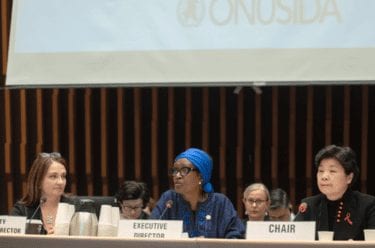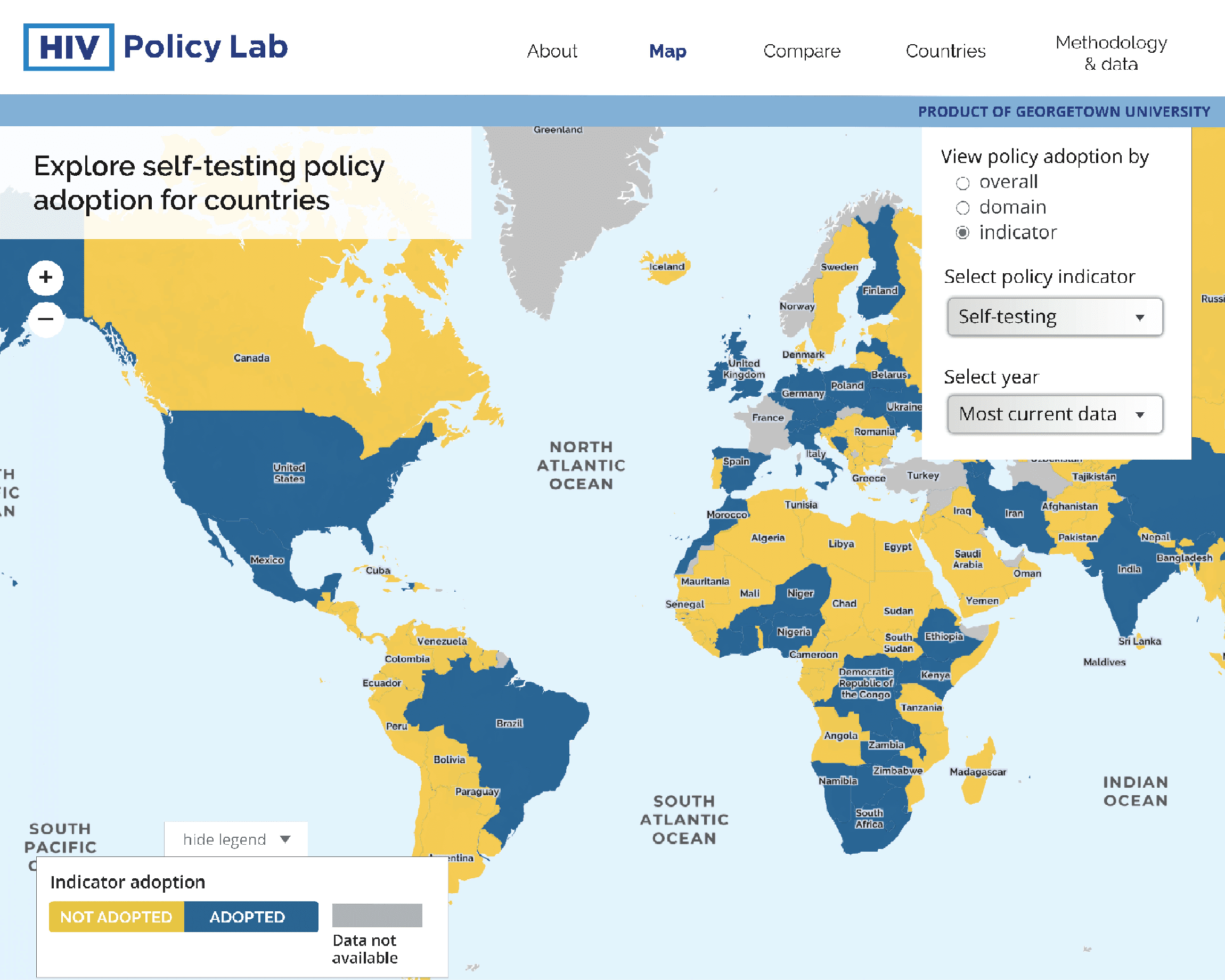Last week, UNAIDS new Executive Director, Dr. Winnie Byanyima, announced the creation of a strategic advisory group to be co-chaired by Georgetown’s own Matt Kavanagh (along with Quarraisha Abdool Karim, Associate Scientific Director at CAPRISA, and Rico Gustav, Executive Director GNP+). Since you’re reading a policy research institute’s blog, you probably don’t need convincing that any time policymakers bring in outside voices to help shape the agenda in a meaningful way, it’s a happy thing. But the Global Health Policy & Politics Initiative is particularly excited by the opportunity to support the bold vision that Byanyima is laying out—one which merges a rights-based approach and a focus on innovation in service delivery to address inequality.

In her speech to the Program Coordinating Board, Byanyima noted the enormous successes in the fight against HIV, but also called the global community out on two “collective failures”. One is the “failure to put equality at the center of our struggle;” the other, the “failure to put in place what we know works.”
The first failure arises when HIV policies and programs focus on treating a virus rather than treating people. “People are starting treatment but are not supported to stay on treatment. They are labelled ‘lost to follow up’, when in fact the system is failing them.” Putting human beings and human rights at the center of the struggle means challenging laws that marginalize and criminalize PLHIV and key populations. In Byanyima’s words, “[a] world where the AIDS response is effective for everyone is a world where laws work for people’s rights, not against them.” This call to change laws/policies is already near and dear to our hearts here at the O’Neill Institute. In June, we’ll be launching the HIV Policy Lab, a database that tracks key policies related to HIV prevention, testing, and treatment; human rights; and health systems strengthening across 194 countries. By measuring countries’ policies against global norms and standards, the Policy Lab will help advocates and policymakers visualize (literally and metaphorically) where reform is needed.

A preview of the HIV Policy Lab
The second failure arises when innovation is disconnected from implementation. The AIDS response has long been at the forefront of innovation in science, medicine, and service delivery. Yet all too often, those innovations aren’t brought to scale and within reach of the people who need them most. We need a vaccine and a cure. But we also “need cutting-edge science translated in ways that work for all people.” Thus, Byanyima’s priorities for the coming year will include getting the best technologies, like TB-LAM tests, to the front lines, integrating service delivery, and promoting widespread adoption of proven strategies, like harm reduction.
In essence, Byanyima’s message is that “[i]nequality and injustices are fueling the HIV epidemic.” Ending the epidemic by 2030 will require both reforming laws and revising our approach to implementation. Her speech issued an ambitious and welcome call to action, and our team is excited to help answer it.



